In this edition of her Eat Ireland column, Deputy Editor Jocelyn Doyle heads deep into the forest in Co. Limerick.
Mushrooms are divisive. I have an aunt who detested their taste as a child, but found them so cute that she forced herself to consume them at every opportunity until she finally enjoyed them. One of my — adult! — cousins will describe even a hint of a mushroom as an “infestation.” As for me, I adore them: creamy mushroom sauce over steak; buttered mushrooms piled on toast for breakfast; portobellos stuffed with golden garlic breadcrumbs; bubbling gratins for a starter.
Superstition surrounding circles of mushrooms runs deep in Irish culture, and disturbing them has been taboo through much of our history. These “faery rings,” are said to be where the fey folk dance come nightfall, or to be portals to the faery realm. As a child, I was fascinated wherever I spotted mushrooms on woodland walks, and had a fondness for puffballs in particular. Even through adult eyes, there’s something inherently mysterious and compelling about wild mushrooms: their other-worldly looks; their symbiotic relationship with forest flora; their ability to either nourish or cause an untimely death, depending on the species.
There are thought to be at least 2,500 varieties of mushroom in Ireland, yet take a look in your local shop — the likelihood is that you’ll find only buttons, chestnuts and portobellos, if that. Smaller independents might stock chanterelles or oyster mushrooms, if you’re lucky, but the range is ludicrously limited. While many of us — myself included — are wary of picking our own wild mushrooms, lest we fall foul of the aforementioned untimely death, we shouldn’t forget that there are experts out there who can forage or grow more adventurous varieties for us, sans risk.
Ballyhoura Mountain Mushrooms is a two-person company run by husband and wife Mark Cribbin and Dr. Lucy Deegan. Mark is from North County Dublin and studied Food Science in UCC before working around the world in product research and development for food multinationals, while Glaswegian Lucy came to UCC to complete her PhD in microbiology.
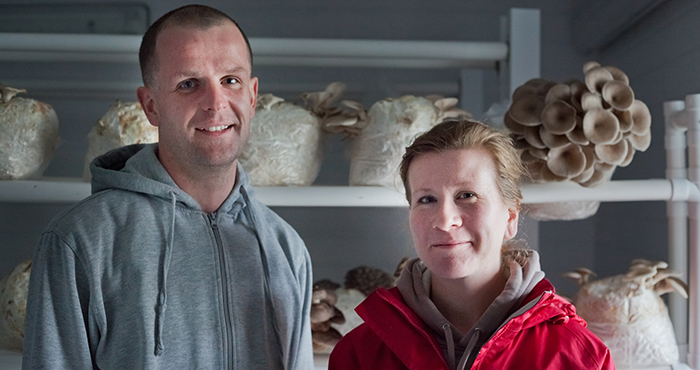
Upon arriving from Scotland, Lucy was dismayed at the paucity of non-standard mushrooms available on the Irish market. “The ones that were available — in places like the English Market — were all imported, and generally of poor quality following a long journey,” says Mark. “We started experimenting with home grow kits, and from there we developed what we do today.” Their work today is a mixture of mushroom farming and the wider, wilder world of foraging. It being just the two of them, the job spans seven days and often more than 60 hours a week. “Mushrooms don’t respect Bank Holidays,” says Mark.
The Ballyhoura farm is high-tech, with seven temperature-controlled rooms; different species need different conditions. “Some are warm loving, some prefer the cold, and different humidity levels are required at different stages,” explains Mark. In fact, this process is vastly more technical than one might expect. A common assumption is that growing mushrooms is a low-skilled job; however, Mark says it is closer to the 10,000 hours of practice required to become an accomplished musician. Even with the level of control afforded by temperature and humidity systems, these are still living organisms, and even a few hours at the wrong conditions can result in crop failure.
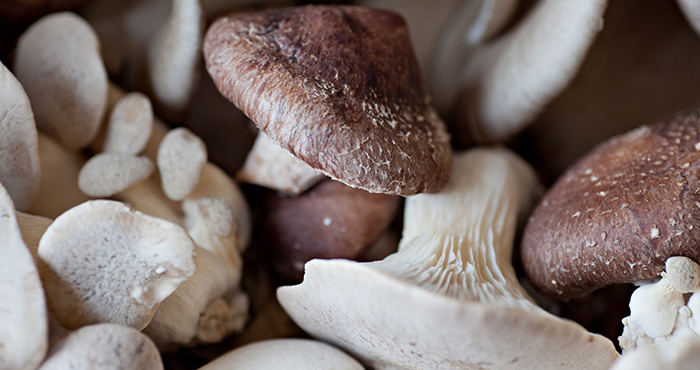
Ballyhoura mushrooms are grown on wood-based substrate like wood chips or sawdust, pasteurised to kill any potential competing micro-organisms, then inoculated with grain mycelium; Mark explains that this is similar to planting seeds in conventional gardening. Depending on the species, it can take 4-18 weeks for the mycelium to colonise the wood, at which point Mark and Lucy will induce fruiting (the technical term for encouraging mushrooms to grow). This can take many forms; some species need to be “shocked” by being placed in refrigerated conditions, others will fruit after a change in light, humidity or oxygen levels.
Mark and Lucy’s backgrounds give them an advantage in keeping their farm healthy and productive. “Good quality raw materials are essential, as is a focus on good internal housekeeping.” Being in such control means that seasonal changes have little to no impact on the farm, and they grow a striking variety of Irish fungi with names that read like Japanese poetry: shiitake, maitake (colloquially known as “hen-of-the-woods”), lion’s mane, white coral, velvet piopinno, buna-shimeji/white beech, grey oyster, nameco, reishi, king stropharia, king oyster and cordyceps.
This degree of control is very much lost once the pair step into the woods. Here, they’re on the hunt for ceps, chanterelles, chicken-of-the-woods, hen-of-the-woods, black trumpet, winter chanterelles, golden chanterelles, morels, oyster mushrooms, St. Georges mushroom, wood and field blewits, hedgehog mushrooms and turkey tails. “Wild mushroom foraging is very seasonal,” says Mark. In Ireland, the main season runs from June until late December. “From August to January, it’s perfectly feasible to be picking 100kg of wild mushrooms a week — we could pick more if we didn’t have the cultivated mushrooms to attend.” Later in the year, however, they’re at the mercy of diminished daylight hours, and often have to finish by 3pm. “Forests are dark places at the best of times.”
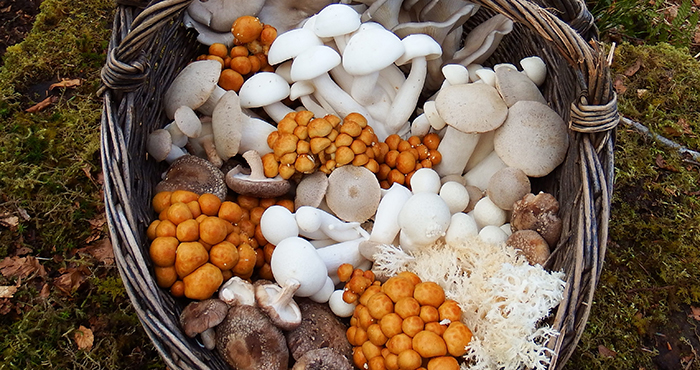
Lucy and Mark usually start around 8am, picking mushrooms and readying orders for dispatch. On Thursdays, they go to Mahon Point Farmers Market, so that means a 7am start; the Limerick Milk Market on Saturdays means a 5.30am rise for Lucy. The rest of the day typically entails substrate work, picking, creating products, and paperwork. Unsurprisingly, they eat a lot of mushrooms. “It would be hard not to: we have access to the freshest and best in Ireland.” A personal favourite is the Mushroom Ketchup. “It is pure umami,” says Mark, “like mushroom soy sauce. We use it in stir-fries, cream sauces, pies and dipping sauces.”
Mark and Lucy are both passionate about sustainability, and this was one of the main reasons they became mushroom growers. “We couldn’t understand why mushrooms were being flown around the world to be sold in Ireland, when they could be cultivated or foraged here. People would question eating a two-week-old fish that was air freighted from Asia, but they don’t apply the same rationale to vegetables or mushrooms.”
After each growth cycle, they repurpose the “waste” substrate to grow a further mushroom, the king stropharia. After this, the compost is used to fertilise an orchard of raspberry and blackcurrant bushes, perfect nutrition for these former forest dwellers. “We avoid wasting unsold mushrooms by processing them in house into a range of shelf stable products such as mushroom seasonings, dried mushroom mixes or ketchup.”
Their fresh mushrooms are mostly destined for restaurant kitchens, from small cafés to Michelin star restaurants, and for local markets. The range of products is available in health stores, speciality shops and grocers, and through the website.
“We may be biased,” says Mark, “but our mushrooms are uniquely designed for flavour and provenance.” The industry has been quick to notice, and three of their products have won three-star Great Taste Awards. The brand continues to evolve, with a range of medicinal extracts and supplements recently launched. “We’re all about displacing imported products and providing provenance and confidence to customers; our products aren’t coming from a faceless manufacturer, but from mushroom growers.”
While their hard work continues, Mark and Lucy are happiest deep in the forest. “We are typically alone with nature and get to witness things many people don’t, whether it’s the seasons changing, squirrels picking acorns, or a deer fawn curled up under a bush.” To bring a little of this sylvan romance into your kitchen, try this rich and creamy wild mushroom pie. Just don’t disturb the faeries.
- summer events
- small business
- gut health
- OATLY
- healthy
- Crudo
- top tips
- All Together Now
- fridge cake
- Events Waterford
- me auld flower
- Events Ireland
- food festival
- news
- dublin
- events Dublin
- dublin festival
- Home-Cooking
- food and drink festival
- online cooking course
- festival line-up
- cooking
- Summer festival
- eco-friendly
- Events
- cosy
- Festivals Ireland
- wine
- Body & Soul
- grapes
- music festival
- south africa
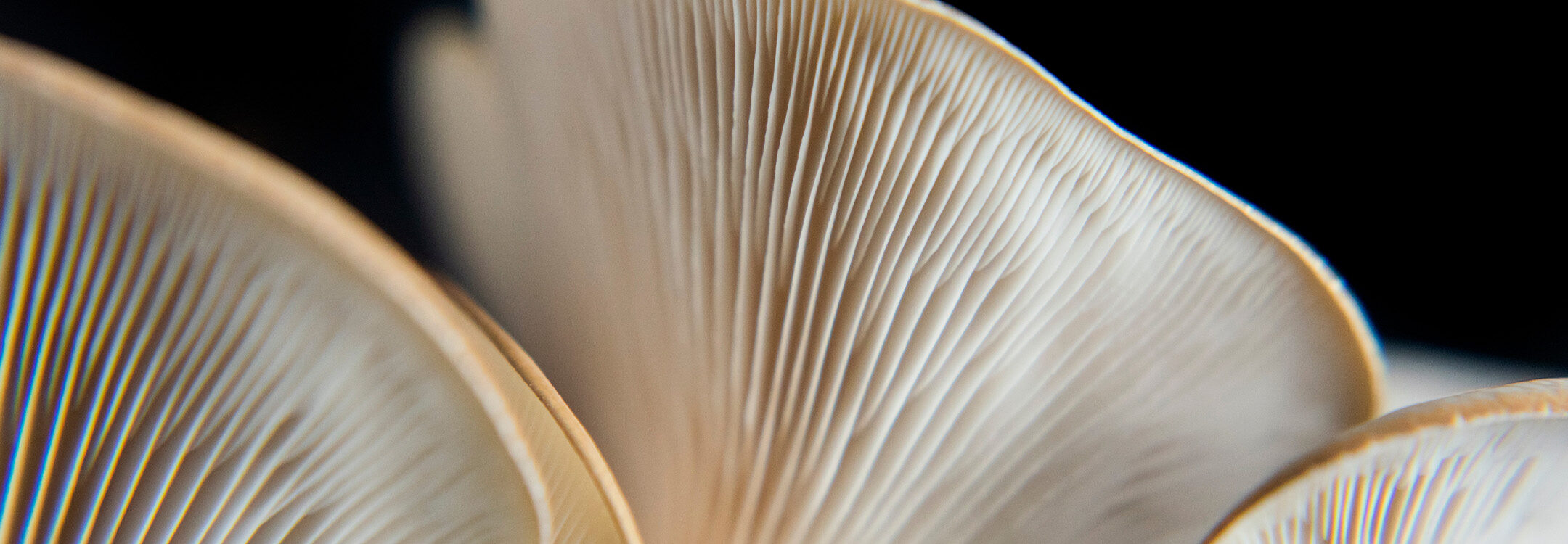
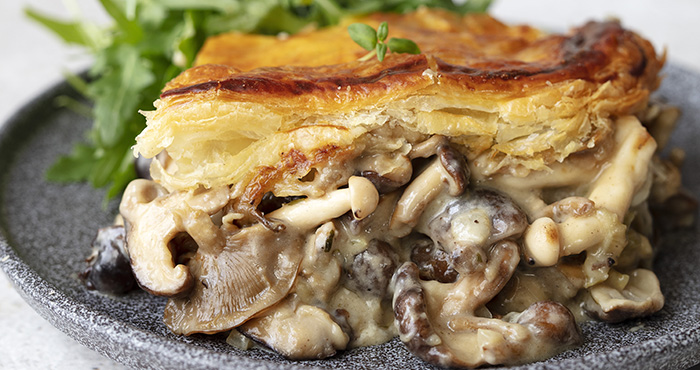


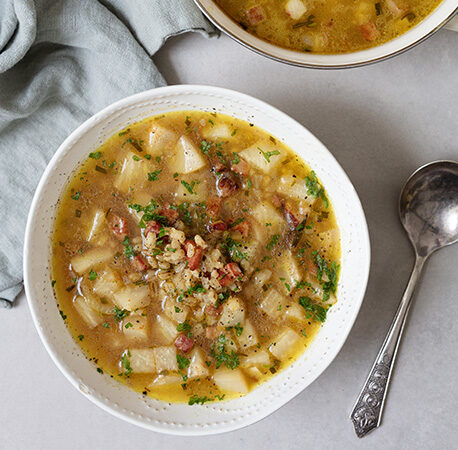


You have to be signed in to comment this post.